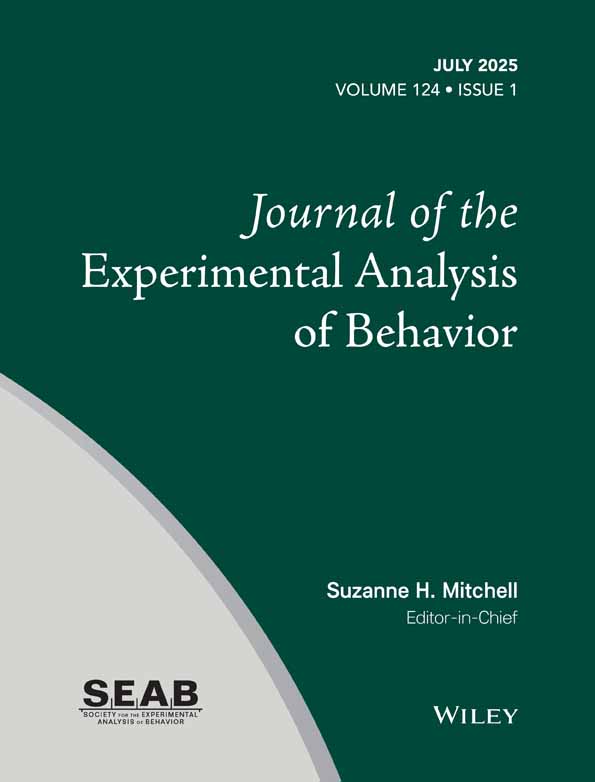FACILITATION OF FOOD-REINFORCED RESPONDING BY A SIGNAL FOR RESPONSE-INDEPENDENT FOOD1
This research was supported by research grants MH14121-01 and MH15468-01 from the National Institute of Mental Health, and by grants from the University Research Council, University of North Carolina. The author thanks Michael Cantor and John McMillan for their criticisms of an earlier draft of this paper, and thanks Anthony Lee Riley for his assistance in running the animals.
Abstract
Five pigeons whose key pecking was maintained by 4-sec access to grain on a variable-interval 2-min schedule received Pavlovian differential conditioning trials superimposed upon the instrumental baseline. The conditioned stimuli were changes in the stimulus on the key from white to red, or to a white horizontal line against a dark background. The positive conditioned stimulus was 20 sec long, and was followed immediately by 8-sec access to grain. The negative conditioned stimulus, also 20 sec long, was never paired with response-independent food. All pigeons responded more rapidly in the presence of the positive conditioned stimulus than in the presence of the negative one. The positive conditioned stimulus produced an increase in response rate over the pre-conditioned stimulus period. The negative conditioned stimulus had no marked effect upon response rate. When the roles of the positive and negative stimuli were reversed, and the duration of the response-independent reinforcement was reduced to 4 sec, the new positive conditioned stimulus came to facilitate responding, and the new negative conditioned stimulus no longer produced facilitation. A second discrimination reversal produced similar outcomes. When a third reversal was initiated, and the duration of response-independent reinforcement was reduced to 2 sec, the difference between the effects of the positive and negative stimuli diminished.




